- Views5586
- Likes3
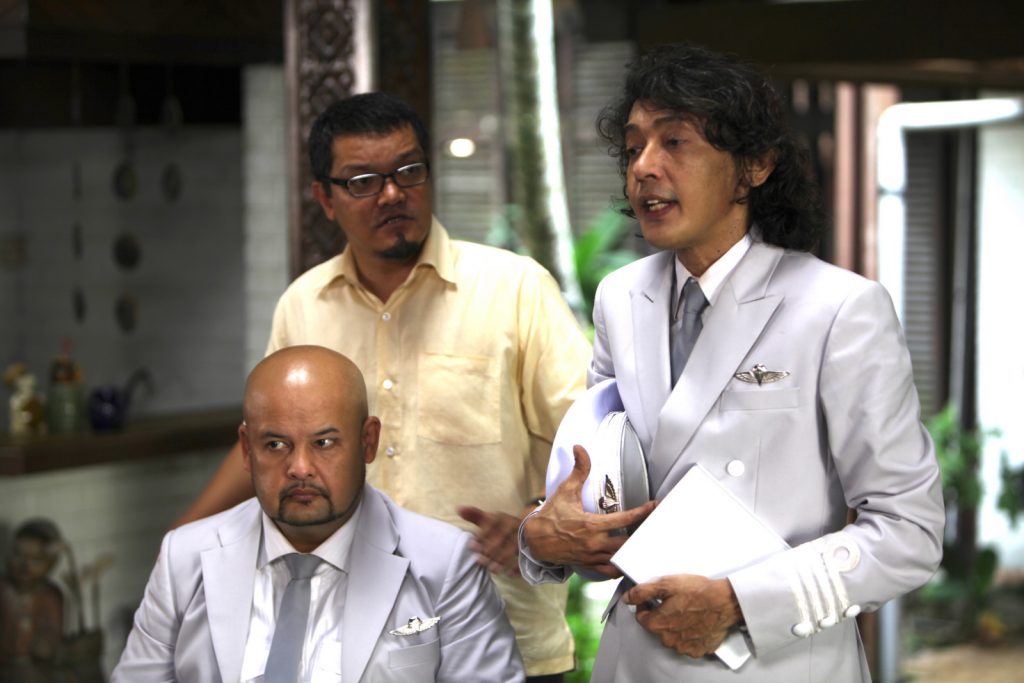
Spilt Gravy
Directed by Zahim Albakri
Produced by ZSA Productions
Review by Miriam Devaprasana
When I first came across the book Jit Murad Plays, I spent the most time lingering between the pages of Spilt Gravy on Rice. It was the perfect final movement to a symphony of hidden vulnerabilities and unapologetic truths. So when news of Spilt Gravy made its way around social media recently, there was no doubt that this was the film we needed to embrace. Especially now.
The premise is simple: Bapak (Rahim Razali) is an ageing father who realises he does not have much time left. So he invites his five children over to dinner to resolve conflicts and ultimately decide who inherits the family house. It opens with a birthday party, providing a glimpse into the life of the five siblings. It is a dream; it is a memory. It is not necessarily his to remember. But it is stirring enough to awaken Bapak to the present – 8 June 2011, where the rest of the story unfolds.
The film stands out in many ways. The familiarity and intimacy between the cast members, many of whom were in the original staging, is so tangible that I believed in every scene they delivered. Sure, the awkward pauses to mark ‘malaikat lalu’ (angels played by Harith Iskander and the late Jit Murad himself) feel rather rigid, and, well, slightly forced. But they are few, and so enveloped with clever shots and wit that they can be overlooked.
I enjoyed the supporting roles of Azri (Carliff Carleel), Michelle (Dara Raziana Othman), Hortense (Bernie Chan), and Sujatha (Joelah Charles). I suppose it’s a little bit of marriage – each main character is paired with a minor cast who helps them work through their insecurities and personal tragedies. Azri and his candidness towards his boyfriend Husni, Michelle the transgender drag queen who provides security for Zakaria, Hortense, and her sense of self in comparison to her best friend Zaitun, and Sujatha, and her protectiveness for her boss Kalsom.
While I found some portrayals rather stereotypical, it is representation nonetheless. Spilt Gravy depicts the complexities of being the ‘other’, the minority, and the LGBTQ+. But it’s brought out in a way which shows that they have come to find a sense of liberation and freedom despite the things that set them apart from the majority. Despite the things that make them, ‘less’. The lack of this relief is something our five siblings have, in a way, yet to discover. There are negotiations which take place, contradictions, perhaps even compromise between the main and minor characters – a beautiful, sensitive consideration of what it looks like to form a collective.
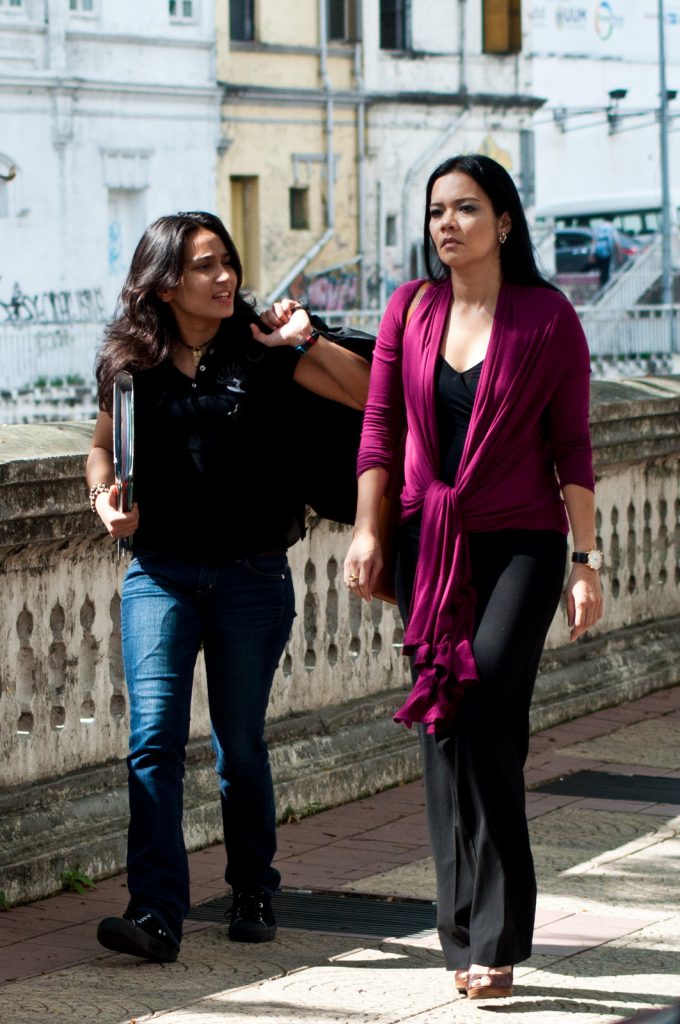
As a person studying sociolinguistics, I also found it linguistically fascinating, most especially the rhythms and performance of speaking a certain language, in a certain way, how it defines us as individuals and as a collective, and how it invites us to perceive each other. It certainly differs from the representations of English-speaking Malays in other films I’ve seen.
In Spilt Gravy, most of the main characters speak in full sentences, with an accent not easily associated with any one specific Western country. It sets them apart from the rest, and oftentimes even from each other (although I think this has more to do with the cast than the script). Evident throughout the film, however, is the creativity and playfulness that the characters negotiate in their language use. This includes the way Darwis reverts to using Bahasa Melayu when his students fail to acknowledge him as he greets them in English, and the way Bapak and Darwis insist on speaking with a slight Filipino accent when interacting with Concepcion (Junji Delfino), their domestic helper. Was it necessary? I can’t tell. But it reveals how easily some of us choose to accommodate our language use with the people we speak to. It is a charming display of Malaysia’s linguistic diversity – one that I have personally come to miss in public spaces.
It was a surprise actually to see that the film, which for the most part stayed true to the script in dialogue and plot, did not compromise on its use of English. I value the way June Tan (alongside director Zahim Albakri and the late Jit Murad) adapted the play for the screen, weaving in additional characters to add context and crafting subtle, yet impactful differences. Unexpected, and appreciated.
I especially thought it bold to show how particular members of a community embraced and performed their use of English (including the use of English names), in a way which defied static, essentialist relations of race, culture, and language. In many ways, it negotiated and created spheres for a form of ‘othering’ within particular ethnic groups. An elite of sorts. In the case of Spilt Gravy, it is the upper-middle-class Malays who are distinctly different from the wider Malay society, and who also carry a burden to provide social mobility for those from kampung settings. Helping them adapt to the foreignness of city life, however, is a different story.
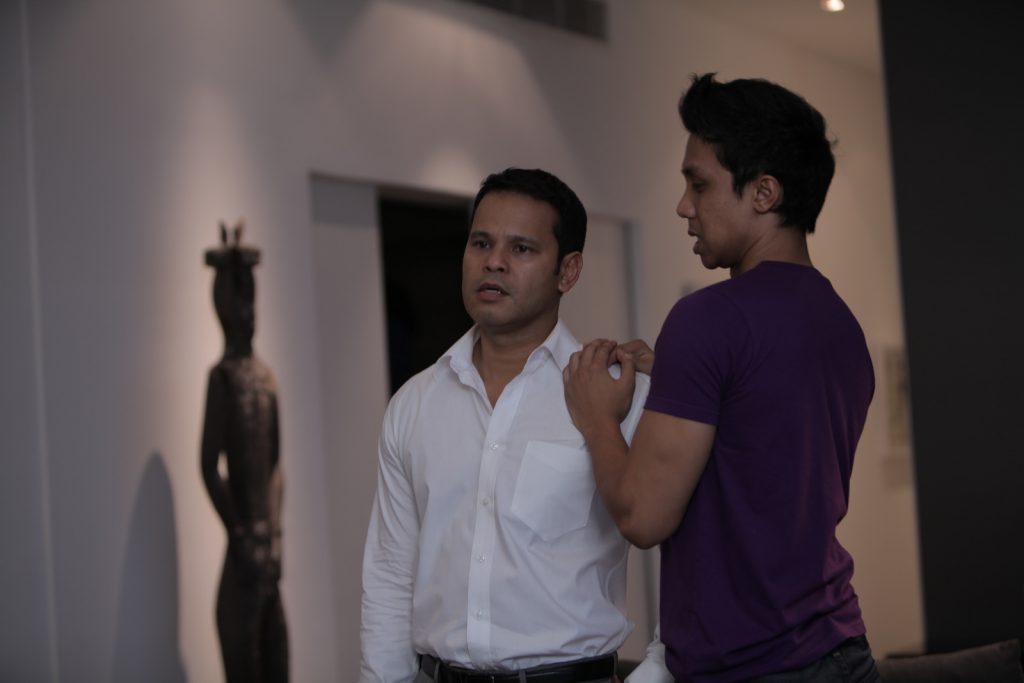
The negotiation of time is also something which stood out to me. Its primary role narrates the journey of this family through flashbacks of childhood memories and the romanticised harmony of polygamy (which is far from the truth for most Malay families I know), whilst being serenaded by the velvety melody of Dibuai Mimpi. But time also carries the weight of revealing just how much everything, and nothing, has changed.
The screenplay is adapted from a script written in 2002. Close to a decade later, in June 2011, production for the film began. The city-scape surrounding the cocoon of green and the family home is now full of skyscrapers, the controversial 1Malaysia advertisement makes a cameo, and so do the unmissable features of the ‘genius’ behind it. That should give you enough to make sense of the socio-economic and political powers at play between the first 10 years of Spilt Gravy’s journey. Eleven years later, we remain bombarded by exasperating repetitions of phrases like “Keluarga Malaysia” strewn over landscapes of an unrecognisable Kuala Lumpur.
Yet time has not made it easier for some to grapple with the negotiations of ‘identity’ which lead to accusations of being a ‘wrong’ kind of Malay. The characters are questioned throughout the film through exclamations like ‘Melayu sesat’, ‘kau dah bukan Melayu?’ and being called a ‘Zionist’ for being perceived as pro-Semitic. Words prevalent then; sentiments prevailing today.
And just as I am beginning to question ‘Siapa Melayu betul?’, comes Hortense’s moment on stage. There is a lot of depth in her role, not just as a Malaysian Chinese woman, but, if I may, as a representation of ethnic minorities in Malaysia, in particular the sentiments within Chinese and Indian communities. As an Indian woman, I hear it all the time: “Study hard, work hard, go overseas”, or “You will never get equal rights here; why bother?” So Hortense’s speech on opportunity, ownership, and belonging made me sit up straight, and then the tears began to flow at the biting truth every word held.
Malaya was a place to become, but the becoming of Malaysia is a constant struggle.
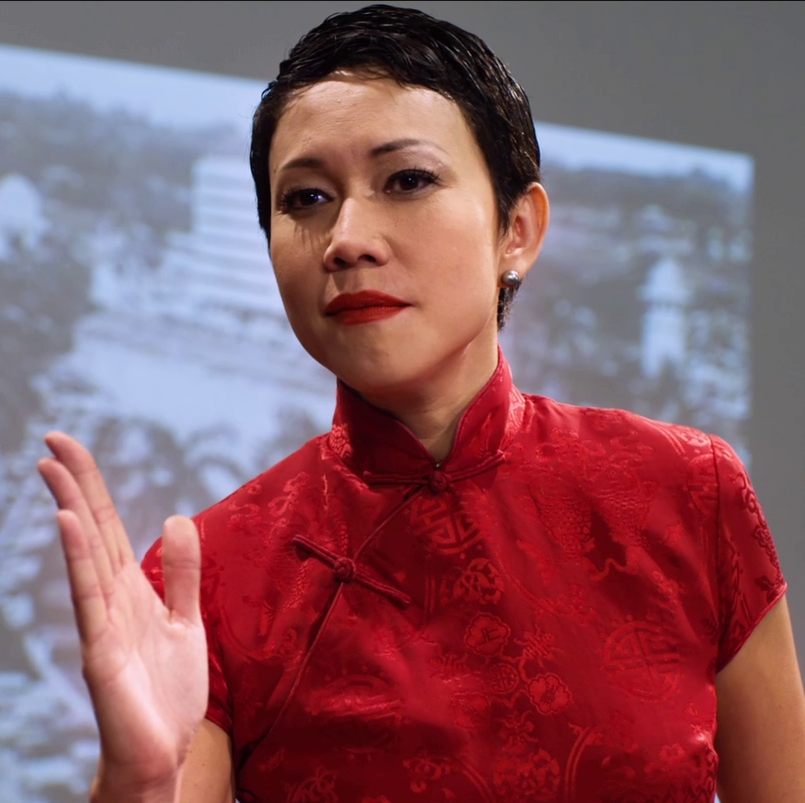
For me, it is these notions of home, belonging, and becoming that drive the narrative of Spilt Gravy. On the surface, the family house is merely a topic of discussion between Darwis (Na’a Murad) and Bapak. But the symbolism of the house scaffolds the subjects of land, inheritance, ownership, and birthright. These are terms which have plagued our discourse on rights, status, and the (im)possibilities of equality in the nation for the longest time, so much so that optimism has been deafened by cynicism and scepticism.
Yet within this house which provided a foundation and refuge for the family are spaces filled with grief, happiness, distance, togetherness, separation, hidden things, laughter, anger, and love. On the outside, it is a well-polished structure for all to admire. On the inside, it is a performance of romance, comedy, and tragedy.
Very much the story of Malaysia.
Yet there is no other country like Malaysia; in the same way, there is no other film like Spilt Gravy. Both hold small spaces for negotiations and contradictions. In the film, small spaces host and envelop words and actions of truth and meaning. A closet for behaviour, a room for perversion, a bedroom for grief, a stage for realisation. Though not all small spaces are safe spaces, some afford the characters the freedom and liberation to engage with their ethnicity, culture, sexuality, gender, and other aspects which inform one’s identity. This is the strength of Spilt Gravy. The film is one with many layers and flavours of discourse presented through expert wit and satire. But it ultimately holds up a mirror to us, and the nation we are struggling to become.
Spilt Gravy was a sort of renaissance for me about what it means to be Malaysian – that perhaps we are like the one who does not know what they want, or the one who becomes the envy of all, yet needs to hide parts of who they are because they are afraid to disappoint. We could also be the one who is tired to the bone and is losing a sense of self and purpose. Or perhaps the ones who are brave enough to stand for the things they believe in but can sometimes forget to give voice and agency to the people closest to them.
We could also be the one who holds back the punches until such a time when the boundaries are pushed and all hell breaks loose. And maybe, just maybe, we might also be the one who cares but does not know how to respond when things go wrong. And we fail to protect the ones we love.
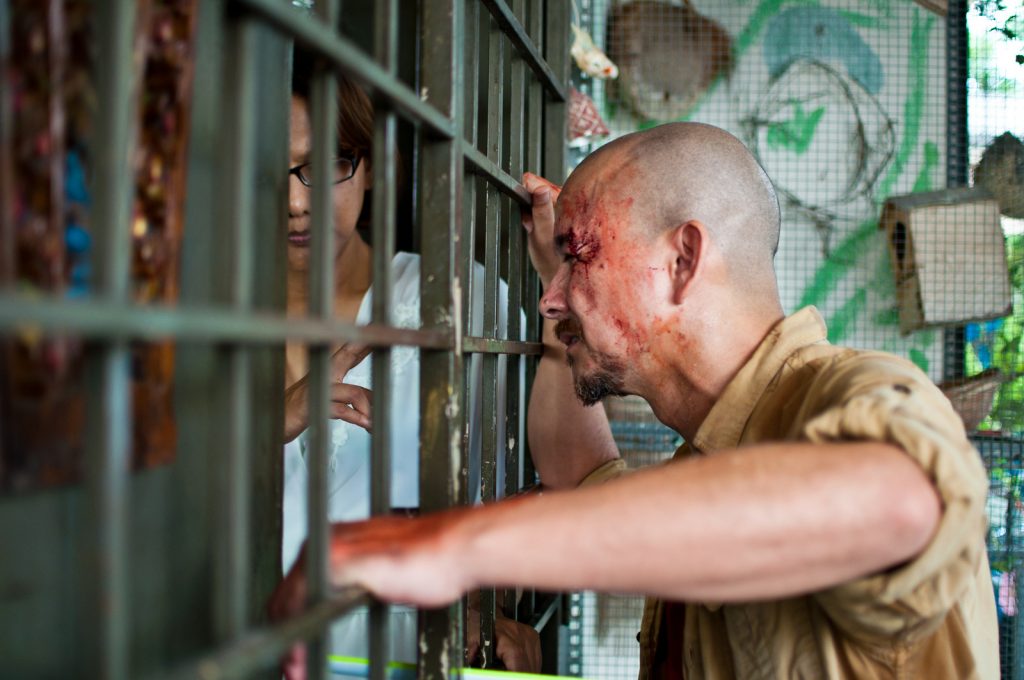
Around the dining table of the final meal that Bapak prepares is an assemblage of blue against white. In Jalur Gemilang, blue is the colour of unity. As the siblings share the meal, their negotiations of secrets and truths bring them together to move beyond the pendulum swings between the past and the present, into the future, however that may look.
Spilt Gravy is a film about screaming, pushing, punching, and arguing, rather than maintaining peace through silence. It is about forgiveness, rather than tolerance. It is about understanding than hate and blame. It is about the love of, and for each other, which binds us together. It is also about asking difficult questions that most people shy away from.
For me, Spilt Gravy is the movie we need to embrace because it shows us who we are at the core. And it asks whether we are ready to become something more.
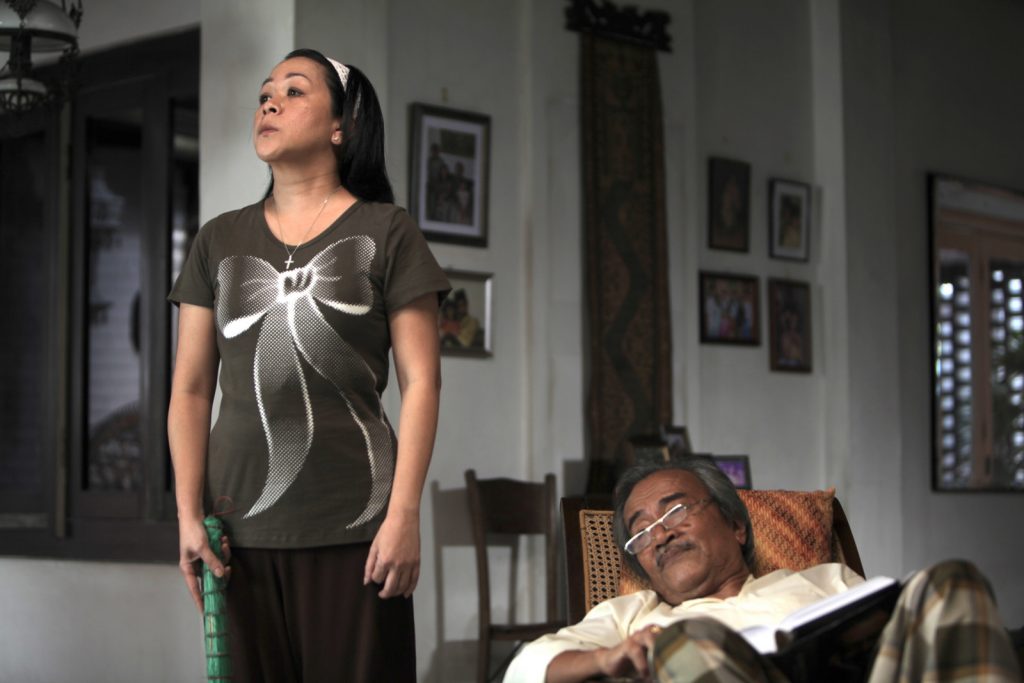
Miriam Devaprasana is an observer and dabbler of creative expressions. She is currently pursuing a PhD in Urban Sociolinguistics and hopes that one day, her work will help form a new way of thinking ‘Malaysia’. Read her blog at mdev16.wordpress.com